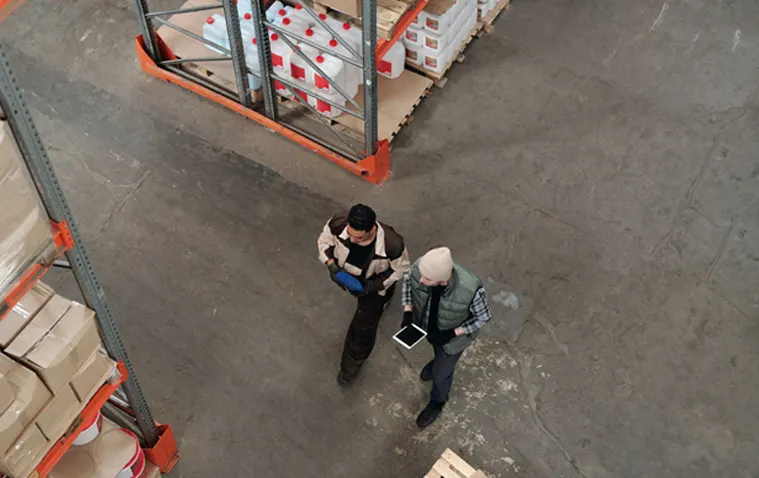Smartphones and tablets have indeed made our lives easier, be it in the personal domain or in our enterprises. But when it comes to specialised functionalities such as in manufacturing companies, regular tablets may not suffice the demanding tasks and environment.
Here comes the utility of rugged devices, that function like any other mobile device, but have several additional advanced features for companies that operate in a harsh environment or are always on the go. Rugged devices can make the work processes easier by offering great connectivity and durability, along with real-time access to all kinds of data. They even have a robust build and design that can make them well-suited for multiple work roles and sectors.

Benefits of Rugged Devices
Rugged tablets can facilitate seamless communication across all departments, and also provide real-time information to both office-bound workers, people working on the shop floors, and any other involved parties.
High Performance and Better Mobility
Tablets have always been a favourite at manufacturing units, as they replace both laptops and smartphones with great ease. In a compact size, they tend to pack as good a processor as in computers. They can help in managing large inventory in warehouses and logistics with the help of advanced tools.
Rugged devices serve all these purposes alongside being very sturdy and suited for any kind of extreme handling. Thus, employees can carry their rugged devices away from the desk and conduct all the required tasks immediately.
Durability
The most certain aspect of a rugged tablet is its durability. Rugged devices allow the manufacturing units to continue their business in all kinds of weather conditions and geographical environments, thus being the perfect accompaniment of industrial workplaces.
According to experts, rugged tablets like those by Zebra have an IP rating of IP65 which ensures that they are protected against dust and water sprays. In addition to the sturdy hardware, the internal components of rugged tablets are also very tightly integrated with an adaptive system. Enterprises can expect longevity from these devices as they have a great lifespan.
Affordability and Great Returns
All enterprises strive to make cost-effective decisions. Rugged tablets are generally more expensive than consumer-grade tablets, but they have a brilliant ROI. Their implementation cost can be slightly higher, but the maintenance cost is almost negligible.
As the rugged tablets suffer fewer damages and breakages, there are minimal repair and support costs. There is no loss in the business too, due to the downtime caused by device failures.
Practically Usable Features
As rugged tablets are designed for enterprises and manufacturing companies, their needs are primarily in focus. With their durability, they come with practical features that find a place in business such as barcode scanning, ergonomic mounts, and straps, fingerprint reading, etc, that may not be present on regular tablets.
Other benefits that help the manufacturing companies are seamless wireless connectivity, support for Android and Windows Pro as per their ecosystem, higher CPU speeds, and quick patches and security updates. Due to Windows and Android support, companies can access millions of applications as per their requirements.
Difference Between Consumer-grade Devices and Rugged Tablets
Having a rugged device that can also be used in different environmental conditions allows convenient mobility within the premises. From specialised activities like managing the warehouse to simple office tasks like sending out approvals and accessing the books, a rugged device can handle a multitude of activities at once.
Consumer-grade tablets are equipped to execute consumer-scale applications, but for enterprise-scale operations, rugged tablets offer better ROI along with compatibility with all kinds of weather and geographical conditions. They even have more in-built accessibility features like scanners to streamline the workflow.
With such great advantages over consumer-grade and handheld devices, rugged devices are becoming a favourite with manufacturing companies. Industries that rely on responsive communication and seamless connectivity despite being exposed to extreme dust, dirt, moisture, or weather conditions can find great use-cases of rugged devices.
There are two major use-cases of rugged tablets:
- Manufacturing floor – to monitor the production line, such that the manager is on the field but still has access to all the data to command and control other operations.
- Warehouse management – accessing multiple data files with information can be incomprehensible on smaller devices, but on rugged tablets, the data is more coherent, without any risk of losing the device to slight wear and tear.
Furthermore, the rugged devices can be used in the fieldwork for scanning, auditing, and other such activities. They even have great battery life, and come with extra battery packs and charger packs, along with the feature of battery swap. According to the demand of your enterprise, you can opt for extra battery packs.
Handheld devices are transactional devices, but the rugged tablets are designed for all kinds of activities – be it monitoring or command and control. Rugged devices can empower the supervisors and other associates who are in the facility but are required to coordinate all around the manufacturing company. Support for both Windows Pro and Android makes the workflow smoother, as per the enterprise’s needs.
Fortune 500 companies have already understood the convenience of having a rugged tablet, and so, they are constantly utilising these devices. Similarly, now the manufacturing companies have realised the potential of these rugged devices and are rapidly making the shift. From mobility to increased visibility of the facilities, different sections of users find different use-cases of rugged tablets. But one thing is certain – With advancing technology, more manufacturing companies are increasingly adopting the culture of using rugged tablets.






